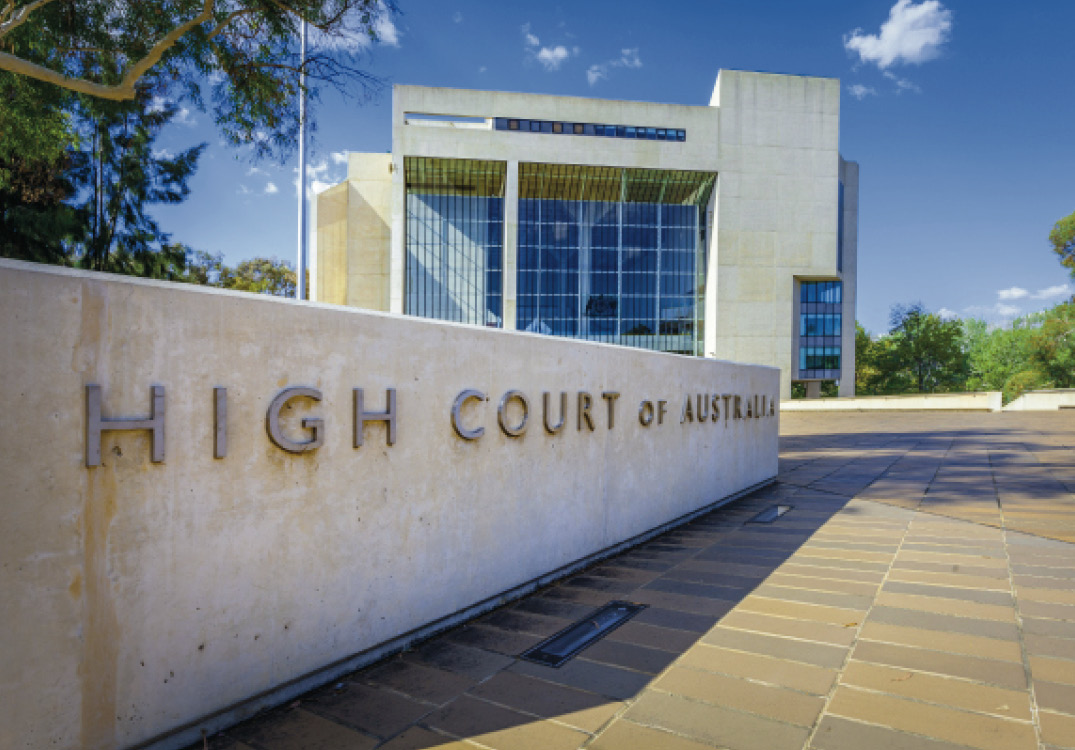Errors of interpretation and the Immigration Assessment Authority - DVO16 v MIBP [2021] HCA 12
...whether an error of language interpretation during an interview between an applicant for a protection visa and a delegate of the Minister may cause a subsequent decision by the Immigration Assessment Authority...to be affected by jurisdictional error.

T he High Court’s recent judgment in DVO16 v Minister for Immigration and Border Protection examines whether an error of language interpretation during an interview between an applicant for a protection visa and a delegate of the Minister may cause a subsequent decision by the Immigration Assessment Authority (‘the Authority’), in reviewing the decision of the delegate (‘fast track reviewable decision’), to be affected by jurisdictional error.
The Authority operates pursuant to Part 7AA of the Migration Act . Except where provided by Part 7AA itself, the Authority must review fast track reviewable decisions by considering ‘review material’ which has been provided to it by the secretary of the relevant department, without accepting or requesting new information and without the Authority itself interviewing the applicant. In most cases, the Authority will hence be required to rely on an audio recording of the delegate’s interview with the applicant (conducted prior to, and for the purposes of, the fast track reviewable decision) as the applicant’s principal opportunity to answer questions and provide oral evidence about their claims.
DVO16 is an Ahwazi Arab from Khuzestan, Iran. During his interview with the Minister’s delegate, he was asked what he meant by a claim that he would be persecuted for his ‘ethnicity’. This round of questioning contained numerous interpretation errors by the interpreter assisting in the conduct of the interview: the delegate’s question about future persecution was interpreted as a question about past persecution by DVO16’s own community; the delegate’s question about persecution on the basis of ‘ethnicity’ was inadequately conveyed; and DVO16’s confusion about some questions and the meaning of the word ‘persecution’ was not adequately conveyed to the delegate. In his application for judicial review of a decision by the Authority rejecting his claims for protection, and on appeal in the Full Federal Court and the High Court, DVO16 argued that these errors of interpretation ‘had effectively distracted him from giving substantial evidence about the type and extent of persecution that he had suffered and thus deflected him from putting his case’ (at [66]).
BNB17 is a Tamil from Sri Lanka. During his interview with the delegate, he claimed to have been ‘tortured’; this was interpreted as him having been ‘beaten many times’. The delegate asked for further information about these ‘beatings’, which led to a series of extended and confused exchanges. A similarly confused exchange resulted from the delegate’s question as to why BNB17 ‘had not previously claimed to have been physically harmed after 2009’, which was misinterpreted as a question about why he had not claimed to have been harmed before 2009. These misinterpretations (and other examples of misinterpretation during the interview) were drawn to the attention of the delegate and the Authority in written submissions. In its reasons for its decision, the Authority noted that ‘it had borne [BNB17’s] legal representative’s post-hearing submission in mind in making its decision’ (at [37]). In his application for judicial review and on appeal, BNB17 alleged that these failures to effectively translate his evidence ‘contributed to the finding by the Authority that [he] had fabricated his claims about being beaten’ (at [62]).
The High Court hence examined the question of how translation errors in a recording of a protection interview provided to the Authority by the secretary of the relevant department as part of the review material may result in non-compliance with any condition of a decision of the Authority expressed in or implied into Pt 7AA (at [18]). The majority judgment of Kiefel CJ, Gageler, Gordon and Steward JJ identified two, but only two, potential sources of jurisdictional error in this regard.
The first source of jurisdictional error may arise in relation to the Authority’s procedural power (under s 473DC of the Migration Act ) to get new information from a referred applicant for review. This discretion must be exercised (or not exercised) reasonably. Faced with errors of interpretation in the applicant’s interview with the delegate, examined in light of the material provided to the Authority or submissions made to the Authority, the Authority could potentially ‘breach the reasonableness condition implied into its powers to get and consider new information’ by failing to exercise those powers to interview the referred applicant. Alternatively, the Authority could potentially exercise its duty to review the delegate’s decision in an unreasonable manner by making findings adverse to the applicant ‘with knowledge of translation errors [and] without having exercised its procedural powers to get and consider new information which might address those errors’ (at [20]).

The second source of jurisdictional error may arise as part of the Authority’s duty to review the delegate’s decision. A misinterpretation could potentially result in the Authority failing to understand and therefore to consider the substance of a claim raised by an applicant, and hence cause the Authority to ‘fai[l] to discharge the core element of its overriding duty’ – to assess the applicant’s claims against the criteria for the grant of a protection visa and to determine whether those criteria have been met (at [22]-[23]).
Edelman J, concurring, suggested an additional potential source of error – that the interpretation errors may be so significant that the Secretary may be unable to perform their duty under s 473CB of the Migration Act ‘of giving the Authority a statement that contains reference to the evidence on which the findings of the delegate were based.’
The court found that the errors in DVO16's and BNB17’s interviews with their respective delegates did not give rise to any form of jurisdictional error. The majority (with whom Edelman J concurred) found that the misinterpretations in DVO16’s interview with the delegate did not bear on the reasonableness of the manner in which the Authority reached its decision, and did not result in any failure by the Authority to understand or consider the substance of his claims. In respect of BNB17, the majority noted that despite the above-noted instances of confusion, the substance of each of the questions was repeated and correctly interpreted on several occasions. The errors of interpretation did not cause the Authority to fail to understand or to consider the substance of BNB17’s claims; similarly, these errors were ‘not so grave or extensive as to compel the Authority to the conclusion that it was incapable of assessing the appellant’s claims by reference to the recording [of the interview with the delegate]’ (at [43]), and it was open to the Authority to proceed on its own assessment of those claims by reference to that recording.
By reason of the above, DVO16’s and BNB17’s appeals were dismissed.